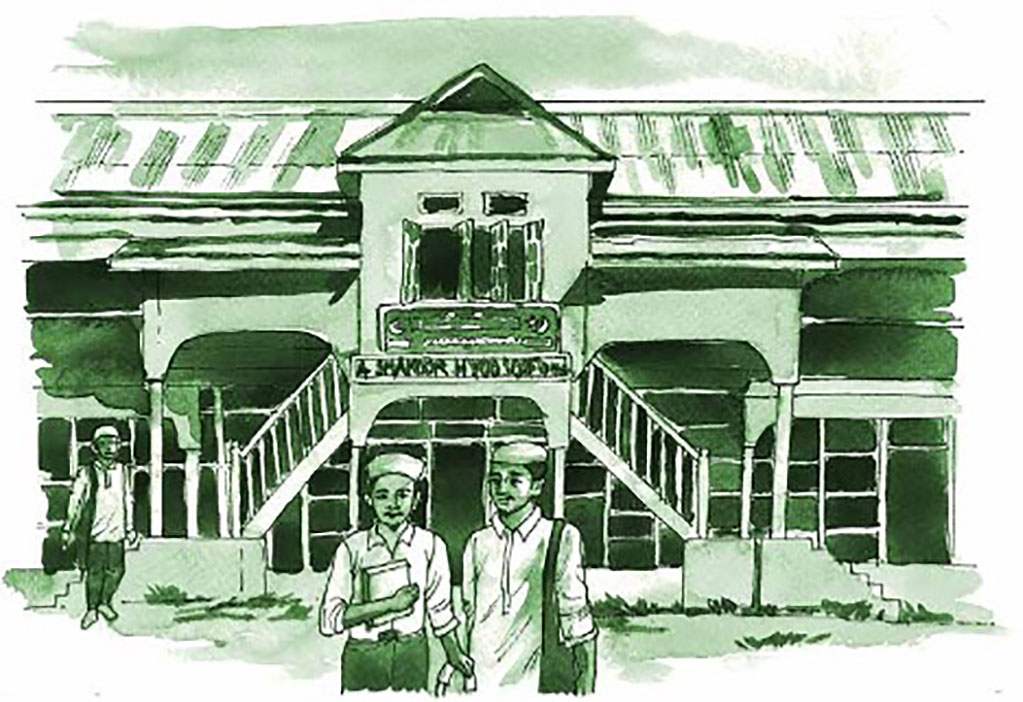PREVIEW
What specific challenges might religious minority groups face?
Some countries have a state religion. In these countries, one particular religion has a special status over the other religions, typically ensured by the constitution. Members of the majority religious group might receive more freedoms, rights, and opportunities than members of minority religious groups. Examples of this may include that the head of state must be a member of the majority religious group, that the government has special ministries or departments for the majority religion, that there is more budget spent on the promotion of the majority religion, or that the government curriculum focuses on the majority religion. Members of religious minority groups may also be forced to convert to the majority religion, such as through coercion.
Religious minority groups may also face discrimination and therefore be restricted from:
- practising their religious beliefs, including building places of worship and raising their children based on the beliefs of their religion;
- using names or languages closely related with a certain religion;
- changing their faith;
- entering into interfaith marriage;
- enrolling in formal education systems;
- participating in political and social activities and;
- being employed by the government.
FOCUS ON MYANMAR:
Madrasas in myanmar
A madrasa is an Islamic religious school. Although there are no recent or reliable official statistics about the number of madrasas in Myanmar, a 1996 book estimated that in that year there were 759 madrasas. Muslim leaders say that since 1962, the government has not approved the opening of new madrasas and mosques. Repairing and restoring madrasas and mosques have also been challenging.
The Myanmar-Arabic Science School was founded in 1937 and is the largest madrasa in Myanmar, with about 1,000 students. In 1960 it moved to a new campus in Kantbalu town, Sagaing Region on land donated by a Buddhist woman named Daw Mi. The madrasa is funded almost entirely by donors, many of whom are from the Muslim community. The school charges an annual fee of 3,000 kyat and provides free accommodation and meals to students who board.
The school focuses on Islamic studies, such as how to apply Islamic teachings to everyday life, and teaches in Arabic, unlike other madrasas in Myanmar that typically teach in Urdu or Burmese language. All students are male, although teachers from the madrasa offer classes for women at mosques in Kantbalu.
In contrast to the success of the Myanmar-Arabic Science School, there are madrasas in other areas in Myanmar that face trouble operating. On April 28, 2017, a group of about 50 Buddhist extreme nationalists pressured local officials in Thaketa Township in Yangon to close two madrasas. The group said that the Muslim community members were illegally using the school to conduct prayers.
Wunna Shwe, who is the Joint Secretary General of the Islamic Religious Affairs Council, said that the closures of madrasas and mosques are not uncommon in Myanmar. “According to our experience, madrasas that are sealed or closed almost never open again,” he said. He also added that other religious minority groups, such as Christians, face similar discrimination with religious schools and places of worship.
The Committee for the Restoration of Destroyed and Prohibited Mosques in Myanmar, which was formed in 2019, has compiled a list of 64 madrasas and mosques in 11 States and Regions. The Committee is advocating for these madrasas and mosques to be reopened. Many of these 64 religious buildings and places of worship were closed by anti-Muslim violence and some were closed by natural disasters or accidental fires.
In 2018, General Administration Department (GAD) township offices, including in Kantbalu, ordered that madrasas needed to use Burmese language and religious classes could only be provided in certain places. This was criticised by leaders of Islamic organisations, who said that the order would negatively affect their right to freely practise their religion. As of 2020, there is no evidence that GAD has enforced this order.
REFLECTION/DISCUSSION
Are there any madrasas or mosques where you live? Have any madrasas or mosques been closed where you live? If yes, why?
အမျိုးသားရေးဝါဒီ
လှုပ်ရှားသွားလာနိုင်မှု
အမွေအနှစ်
ကိုလိုနီဝါဒ
